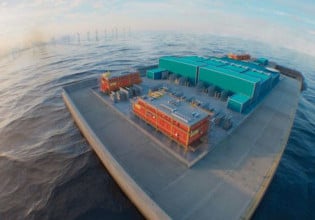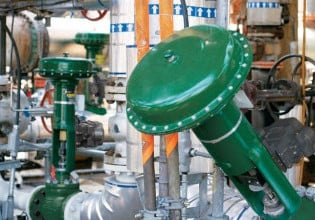Lithium-Sulfur Cells Pushing Toward 500WH/kg for Electric Aircraft
OXIS Energy UK has already achieved 425Wh/kg on a High Energy 16Ah pouch cell design for HAPS applications (High Altitude Pseudo Satellites) and expects to achieve 450Wh/kg at cell level by the end of 2018. OXIS aims to reach 500Wh/kg by the end of 2019 through its many collaborations and partnerships.
Dr. David Ainsworth, Chief Technology Officer commented: "At 425Wh/kg, OXIS has one of the lightest pouch cells currently available and is already attracting significant interest from major players in the aerospace sector. The cell is about to go into prototype applications."
OXIS has also developed a prototype battery module for the aviation sector which has enabled OXIS' customers to increase flight time three-fold. The battery module uses a High Power, Ultra-Light Lithium Sulfur pouch cell at 300Wh/kg. Future modules will tap into the increasing capabilities of Lithium Sulfur pouch cells, where High Power cells are forecast to achieve 400Wh/kg by 2019.
Dr. Mark Crittenden who is Head of Battery Development & Integration said: "The benefits of switching to electric aircraft are seen as reduced costs and reduced noise pollution. The most important part for that success is having very lightweight batteries which store sufficient energy to provide the required aircraft flight time and range. We are delighted that lithium sulfur provides this solution and will enable the uptake of electric aviation."
OXIS's relationship with key materials suppliers remains crucial in the achievement of these technical milestones. OXIS has also been awarded the LiSFAB project which is funded by Innovate UK through the Faraday Challenge Programme which aims to improve the power and cycle life of the OXIS Li-S technology for heavy electrical vehicles.
According to Huw Hampson-Jones, CEO of OXIS, "In the last 12 months, the pace of technological development has quickened substantially. This reflects our collaboration with some of the world's foremost material companies, as well as clients in the aviation, defense and automotive sectors. OXIS has a special program valued at US$10 million, dedicated to the development of high-powered lithium sulfur cells for electric buses and trucks.
“In many ways, over the course of the next 2-3 years with commercial development, technological achievements as well as the mass production of lithium sulfur cells coming on stream, the case for investing in lithium-ion gigafactories is a 'fool's paradise',” concluded Hampson-Jones.







